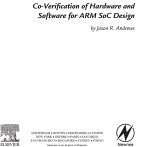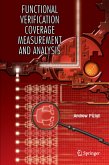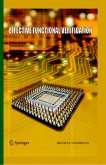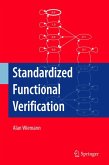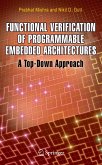In practice, the architectural intent of a device is necessarily abstract. The implementation process, however, must define the detailed mechanisms to achieve the architectural goals. Based on a decade of experience, Principles of Functional Verification intends to pinpoint the issues, provide strategies to solve the issues, and present practical applications for narrowing the gap between architectural intent and implementation.
The book is divided into three parts, each building upon the chapters within the previous part. Part One addresses why functional verification is necessary, its definition and goals. In Part Two, the heart of the methodology and approaches to solving verification issues are examined. Each chapter in this part ends with exercises to apply what was discussed in the chapter. Part Three looks at practical applications, discussing project planning, resource requirements, and costs. Each chapter throughout all three parts will open with Key Objectives, focal points the reader can expect to review in the chapter.
* Takes a "holistic" approach to verification issues
* Approach is not restricted to one language
* Discussed the verification process, not just how to use the verification language
Dieser Download kann aus rechtlichen Gründen nur mit Rechnungsadresse in A, B, BG, CY, CZ, D, DK, EW, E, FIN, F, GR, HR, H, IRL, I, LT, L, LR, M, NL, PL, P, R, S, SLO, SK ausgeliefert werden.




